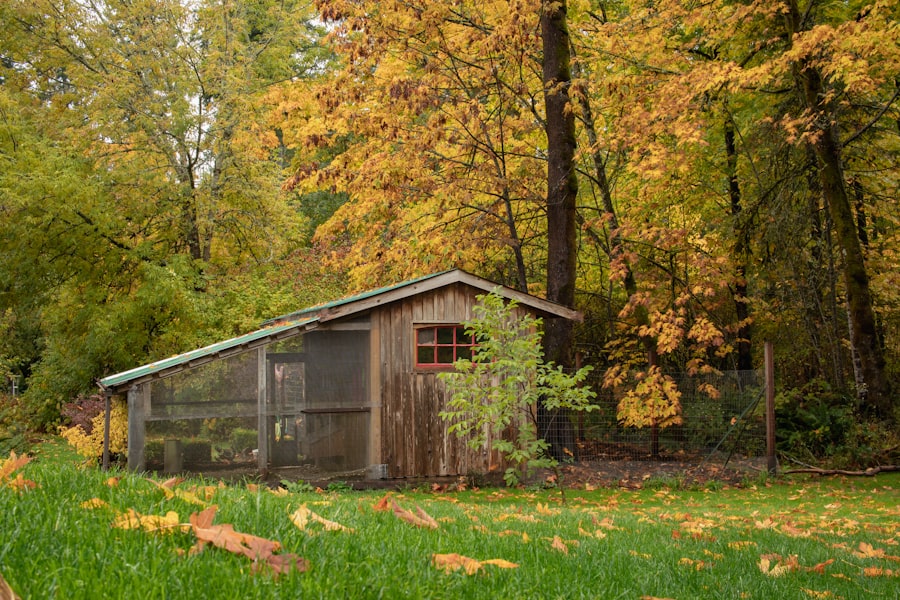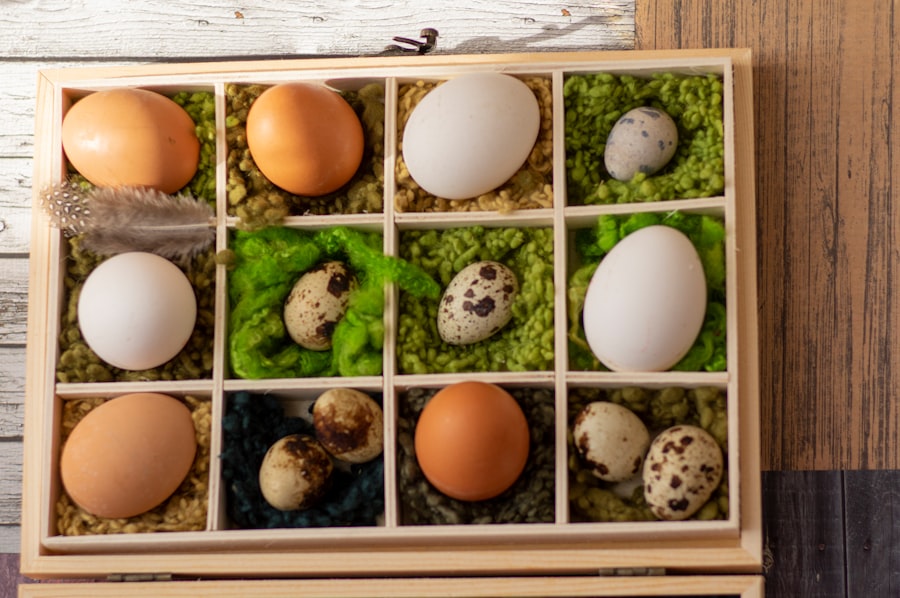When keeping chickens on an allotment, it is essential to understand and comply with the regulations set by the allotment authorities. These regulations can vary between locations, so it is crucial to research the specific rules that apply to your area. Common guidelines may include restrictions on the number of chickens allowed per plot, requirements for housing and fencing, and protocols for waste disposal.
Additionally, there may be limitations on noise and odor to minimize disturbances to neighboring plots. To ensure compliance, it is advisable to communicate directly with the allotment authorities. This may involve obtaining written permission or submitting a formal proposal outlining your plans for keeping chickens.
Proactive communication demonstrates your commitment to following the rules and being a responsible chicken keeper. Some allotments may require specific types of chicken coops or runs, while others may have guidelines on the placement of these structures within the plot. It is also important to consider biosecurity measures to prevent the spread of diseases among chickens and to other animals in the area.
By thoroughly understanding and adhering to the allotment regulations, you can create a harmonious environment for your chickens and fellow allotment holders while avoiding potential conflicts or issues with the authorities.
Table of Contents
Key Takeaways
- Allotment regulations vary by location and it’s important to understand and comply with them before keeping chickens.
- Calculate the space requirements for chickens based on the number of birds and their size to ensure they have enough room to roam and forage.
- Choose chicken breeds that are well-suited to your climate, space, and purpose, such as egg-laying or meat production.
- Consider the potential noise and smell that chickens can produce and take steps to minimize any disturbances to neighbors.
- Proper waste management and cleanliness are essential for maintaining a healthy and hygienic environment for both the chickens and the surrounding area.
- Ensure that the chickens receive proper care and welfare, including access to food, water, shelter, and veterinary care as needed.
- Seek approval from the allotment authorities before keeping chickens to ensure compliance with any additional regulations or restrictions.
Calculating Space Requirements for Chickens
Outdoor Space Requirements
As a general rule of thumb, it’s recommended to provide at least 1-2 square meters of outdoor space per chicken to allow for adequate room to roam, scratch, and forage. Additionally, you’ll need to consider the space requirements for feeding and watering areas.
Coop Space Requirements
In addition to outdoor space, it’s also important to consider the space requirements for a chicken coop or hen house. The coop should provide enough room for all of your chickens to roost comfortably at night and lay their eggs in nesting boxes. It’s recommended to allow at least 1-2 square feet of indoor space per chicken in the coop, as well as 1 nesting box for every 3-4 hens.
Creating a Healthy Environment
By providing adequate space in the coop and outdoor areas, you can ensure that your chickens have a safe and secure place to rest and lay eggs. Ultimately, calculating the space requirements for chickens is essential for creating a healthy and comfortable living environment for your flock on the allotment.
Choosing the Right Chicken Breeds

When it comes to keeping chickens on an allotment, choosing the right breeds is essential for success. There are countless chicken breeds available, each with its own unique characteristics and suitability for different environments. When selecting breeds for your allotment, it’s important to consider factors such as climate, space availability, egg production, and temperament.
Some breeds are better suited for free-ranging on an allotment, while others may thrive in a more confined space. Additionally, some breeds are known for their prolific egg-laying abilities, while others are prized for their meat production. By carefully researching and selecting the right chicken breeds for your allotment, you can ensure that your flock is well-suited to your specific needs and environment.
In addition to considering practical factors, it’s also important to think about the aesthetic appeal of different chicken breeds. Some breeds are known for their striking plumage and unique appearances, which can add visual interest and diversity to your allotment. Additionally, certain breeds may have specific cultural or historical significance that resonates with allotment holders.
By choosing breeds that align with your personal preferences and interests, you can create a diverse and engaging flock that enhances the overall experience of keeping chickens on your allotment. Ultimately, choosing the right chicken breeds is a crucial decision that can impact the success and enjoyment of keeping chickens on an allotment.
Considering Noise and Smell
When planning to keep chickens on an allotment, it’s important to consider the potential impact of noise and smell on yourself and neighboring plot holders. Chickens are naturally vocal animals and can produce a range of sounds throughout the day, including clucking, crowing, and squawking. Additionally, chicken coops and runs can generate odors from droppings and bedding materials.
It’s important to be mindful of these factors and take steps to minimize any potential disturbances or nuisances caused by noise and smell. This may involve positioning the chicken coop in a strategic location away from neighboring plots or using sound-absorbing materials in the coop to reduce noise levels. In addition to noise management, it’s also important to implement effective waste management practices to minimize odor on the allotment.
Regularly cleaning and maintaining the chicken coop and run can help reduce odors associated with droppings and bedding materials. Additionally, using absorbent bedding materials such as straw or wood shavings can help control odors and maintain a clean living environment for your chickens. By being proactive in addressing noise and smell concerns, you can demonstrate consideration for your fellow plot holders and create a positive experience for everyone involved in the allotment community.
Managing Waste and Cleanliness
Proper waste management and cleanliness are essential aspects of keeping chickens on an allotment. Chickens produce a significant amount of waste in the form of droppings, which can accumulate in the coop and run if not managed effectively. It’s important to establish a regular cleaning routine to remove droppings and soiled bedding from the coop and run to maintain a clean and hygienic living environment for your chickens.
Additionally, implementing proper waste disposal practices can help minimize odor and reduce the risk of attracting pests such as flies or rodents. In addition to waste management, it’s important to prioritize cleanliness in all aspects of chicken care on the allotment. This includes regularly cleaning feeding and watering areas to prevent contamination and disease transmission.
Providing fresh bedding materials in the coop and nesting boxes can also contribute to a clean and comfortable living environment for your flock. By maintaining high standards of cleanliness and waste management, you can ensure that your chickens are healthy and happy while minimizing any potential impact on the surrounding allotment community.
Ensuring Proper Care and Welfare

Nutrition and Health
A balanced diet and access to clean water are essential for the physical health of your chickens. Regular health checks can help identify any potential issues early on, ensuring prompt treatment and preventing the spread of disease.
A Safe and Secure Environment
Creating a safe and secure environment is crucial for the overall well-being of your chickens. This includes providing adequate protection from predators by securing the chicken coop and run with sturdy fencing or wire mesh.
Mental and Emotional Welfare
In addition to physical care, it’s also important to consider the mental and emotional welfare of your chickens. Providing opportunities for natural behaviors such as scratching, dust bathing, and foraging can help keep your flock mentally stimulated and content. Spending time interacting with your chickens through gentle handling and socialization can help build trust and strengthen the bond between you and your flock. By prioritizing proper care and welfare, you can create a nurturing environment where your chickens can thrive and flourish.
Seeking approval from allotment authorities is an important step when planning to keep chickens on an allotment. This may involve submitting a formal proposal outlining your plans for keeping chickens, including details such as the number of birds, housing arrangements, waste management practices, and any measures taken to address noise or smell concerns. By proactively seeking approval from allotment authorities, you can demonstrate your commitment to following the rules and being a responsible chicken keeper.
In addition to seeking approval, it’s also important to maintain open communication with allotment authorities throughout the process of keeping chickens on the allotment. This may involve providing regular updates on any changes or developments related to your chicken-keeping activities, as well as addressing any concerns or issues that may arise. By fostering a positive relationship with allotment authorities, you can contribute to a harmonious environment where everyone can enjoy the benefits of keeping chickens on the allotment.
In conclusion, keeping chickens on an allotment requires careful consideration of regulations, space requirements, breed selection, noise and smell management, waste management, care and welfare practices, as well as seeking approval from allotment authorities. By taking these factors into account and implementing responsible practices, you can create a positive experience for yourself, your chickens, and fellow plot holders on the allotment. With proper planning and consideration, keeping chickens on an allotment can be a rewarding endeavor that adds value to the community while providing fresh eggs and enjoyment for all involved.
If you’re considering keeping chickens on your allotment, you may also be interested in learning about the best chicken coop interior ideas. Check out this article on chicken coop interior ideas for tips on creating a comfortable and functional living space for your feathered friends.
FAQs
What is an allotment?
An allotment is a small plot of land, typically rented from a local council or private landlord, for the purpose of growing fruits, vegetables, and sometimes keeping small livestock such as chickens.
How many chickens can I keep on my allotment?
The number of chickens you can keep on your allotment will depend on the specific regulations set by your local council or landlord. These regulations may be based on the size of your allotment, the proximity to neighboring plots, and local zoning laws.
Are there any legal restrictions on keeping chickens on an allotment?
Yes, there may be legal restrictions on keeping chickens on an allotment, such as limits on the number of chickens allowed, requirements for coop size and placement, and rules regarding noise and odor. It’s important to check with your local council or landlord to understand the specific regulations that apply to your allotment.
What are the benefits of keeping chickens on an allotment?
Keeping chickens on an allotment can provide a sustainable source of fresh eggs, natural pest control for your garden, and the opportunity to engage in a rewarding and educational hobby. Chickens also produce valuable fertilizer for your plants.
What should I consider before keeping chickens on my allotment?
Before keeping chickens on your allotment, it’s important to consider factors such as the time and effort required for their care, the cost of setting up a suitable coop and run, and the potential impact on neighboring allotment holders. It’s also important to ensure that you have the necessary knowledge and resources to care for the chickens properly.
Meet Walter, the feathered-friend fanatic of Florida! Nestled in the sunshine state, Walter struts through life with his feathered companions, clucking his way to happiness. With a coop that’s fancier than a five-star hotel, he’s the Don Juan of the chicken world. When he’s not teaching his hens to do the cha-cha, you’ll find him in a heated debate with his prized rooster, Sir Clucks-a-Lot. Walter’s poultry passion is no yolk; he’s the sunny-side-up guy you never knew you needed in your flock of friends!







